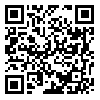BibTeX | RIS | EndNote | Medlars | ProCite | Reference Manager | RefWorks
Send citation to:
URL: http://jcp.khu.ac.ir/article-1-2481-en.html
The aim of this research was to compare the effectiveness of MCT and Neurofeedback on metacognitive believes and symptoms of SAD. This research was a single subject study with volunteer sampling method. 7 students from Ferdowsi and Farhangian universities with diagnosis of SAD have been matched and assigned into one of the three groups (control, MCT and Neurofeedback).DSM-IV structured interview,Conner's Social Phobia Inventory, Watson and Friend's social anxiety questionnair, metacognition questionnair have been used before and after intervention and in 45 days follow-up. Conner's Inventory also had been answered 2 times within the treatment. 8 session per week for MCT and 16 sessions 3 times each week for neurofeedback has been performed. Percent recovery is used for data analysis. Results showed MCT and neurofeedback were effective in treating SAD with different range of percent recovery in each one of the subjects. But the mean of percent recoveries weren't different between the two interventions. Although metacognitive believes changed more in MCT. Percent recovery has improved in the follow up. In general, MCT and Neurofeedback are both effective in reducing SAD but MCT was more effective in milder SAD and Neurofeedback was more effective in more severe SAD than MCT.
Received: 2016/01/9 | Accepted: 2016/04/17 | Published: 2016/08/22
| Rights and permissions | |
 |
This work is licensed under a Creative Commons Attribution-NonCommercial 4.0 International License. |






